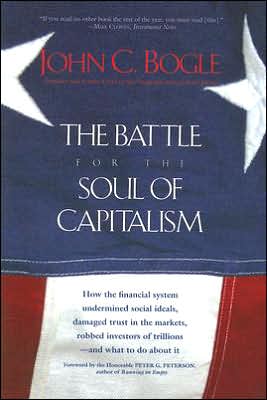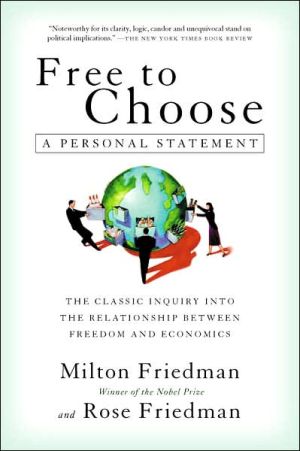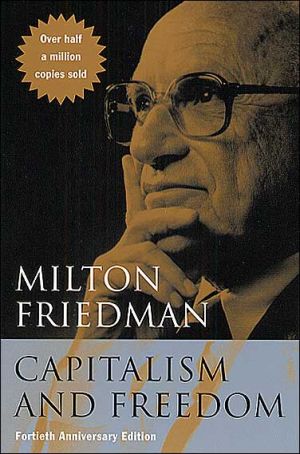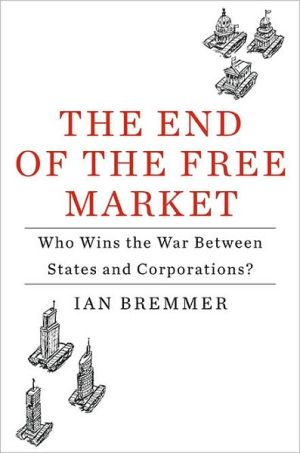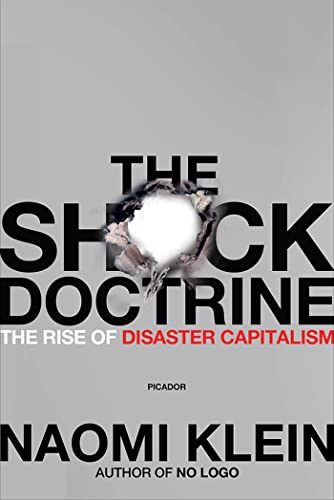The Battle for the Soul of Capitalism
An astute, longtime observer of the business world, the founder and former CEO of Vanguard mutual funds explains the failures of the American financial system and the abuses that have plagued it in recent years. More important, John C. Bogle offers a host of practical reforms to restore integrity to corporate and investment America and to protect small investors' interests.\ "If you read no other book the rest of the year, you must read The Battle for the Soul of Capitalism."—Mike Clowes,...
Search in google:
A financial expert explains what’s wrong in corporate, investment, and mutual fund America, the reasons behind the problems, and what should be done about it The New York Times - Jeff Madrick … we should be grateful that an insider like him is willing to elucidate the often murky and apparently deceptive workings of the Street. John Bogle has been making Wall Street a better place for decades. His book is yet another important contribution in an illustrious career.
THE BATTLE FOR THE SOUL OF CAPITALISM\ \ By John C. Bogle \ YALE UNIVERSITY PRESS\ Copyright © 2005 John C. Bogle\ All right reserved.\ ISBN: 978-0-300-11971-8 \ \ \ Chapter One\ What Went Wrong in Corporate America? \ "A Pathological Mutation"\ The great stock market bubble of 1997-2000, and the great crash that inevitably followed, are poignant reminders of the periodic but random aberrations described in Charles MacKay's 1885 epic history of speculation, Extraordinary Popular Delusions and the Madness of Crowds. Each burst of madness, of course, is different, but each yields similar adverse consequences. The most recent episode witnessed the culmination of an era in which our business corporations and our financial institutions, working in tacit harmony, corrupted the traditional nature of capitalism, shattering both confidence in the markets and the accumulated wealth of countless American families. Something went profoundly wrong, fundamentally and pervasively, in corporate America.\ At the root of the problem, in the broadest sense, was a societal change aptly described by these words from the teacher Joseph Campbell: "In medieval times, as you approached the city, your eye was taken by the Cathedral. Today, it's the towers of commerce. It's business, business, business." We had become what Campbell called a "bottom-line society." But our society cameto measure the wrong bottom line: form over substance, prestige over virtue, money over achievement, charisma over character, the ephemeral over the enduring, even mammon over God.\ Joseph Campbell's analogy proved to be ominous. On September 11, 2001, we witnessed the total destruction of the proudest towers of American commerce, the twin towers of New York's World Trade Center. While that tragic event reawakened the nation to many of our social values, it was too late to deter our financial system from its ruinous course. In the aftermath, the stock market continued its downward trajectory. When the plunge ended, the aggregate market value of America's corporations had dropped by a stunning 50 percent, the worst stock market crash since 1929-33. The value of U.S. stocks collapsed from $17 trillion to $9 trillion, before some $4 trillion of this paper wealth was recovered in the ensuing market rebound. New symbols of commerce arose from the ashes: no longer the proud towers of commerce, but beleaguered captains of industry. Too many of our business leaders were transmogrified from mighty lions of corporate success to self-serving and untrustworthy operators, with several doing "perp walks" for the television cameras.\ Our bottom-line society has a good bit to answer for. As the United Kingdom's chief rabbi Jonathan Sacks put it: "When everything that matters can be bought and sold, when commitments can be broken because they are no longer to our advantage, when shopping becomes salvation and advertising slogans become our litany, when our worth is measured by how much we earn and spend, then the market is destroying the very virtues on which in the long run it depends."\ Capitalism-The Virtuous Circle\ Capitalism, Webster's Third International Dictionary tells us, is "an economic system based on corporate ownership of capital goods, with investment determined by private decision, and with prices, production, and the distribution of goods and services determined mainly in a free market." Importantly, I would add, it is "a system founded on honesty, decency, and trust," for these attributes too have been clearly established in its modern history.\ During the eighteenth and nineteenth centuries, as the world moved from its agrarian roots toward an industrial society, capitalism began to flourish. Local communities became part of national and, later, international commerce; trading expanded; and large accumulations of capital were required to build the factories, develop the transportation systems, and fund the banks on which the new economy would depend. Surprising as it may seem today, according to an article by James Surowiecki in Forbes, the Quakers were at the heart of this development.\ In the 1700s and early 1800s, Quakers dominated the British economy, probably because their legendary simplicity and thrift endowed them with the capital to invest. They owned more than half of the country's ironworks and played key roles in banking, consumer goods, and transatlantic trading. Their emphasis on reliability, absolute honesty, and rigorous record-keeping infused them with trust as they dealt with one another, and other observant merchants came to see that being trustworthy went hand in hand with business success. Self-interest demanded virtue.\ This coincidence of virtue and value, of course, is exactly what the great Scottish economist and philosopher Adam Smith expected. In The Wealth of Nations in 1776, he famously wrote, "The uniform and uninterrupted effort to better his condition, the principle from which [both] public and private opulence is originally derived, is frequently powerful enough to maintain the natural progress of things toward improvement.... Each individual neither intends to promote the public interest, nor knows how much he is promoting it ... [but] by directing his industry in such a matter as its produce may be of the greatest value, he is led by an invisible hand to promote an end which was no part of his intention."\ And so it was to be, the Forbes essay continued, that "the evolution of capitalism has been in the direction of more trust and transparency and less [purely] self-serving behavior; not coincidentally, this evolution has brought with it greater productivity and economic growth.... Not because capitalists are naturally good people, [but] because the benefits of trust-of being trusting and of being trustworthy-are potentially immense, and because a successful market system teaches people to recognize those benefits ... a virtuous cycle in which an everyday level of trust-worthiness breeds an everyday level of trust."\ Said differently, capitalism requires a structure and a value system that people believe in and can depend on. We do not need a Pollyannaish faith in the goodwill of mankind, but we do need the confidence that promises and commitments, once made, will be kept. We also need assurances that the system as a whole does not unduly benefit some at the expense of others. It is these elements that led capitalism to flourish.\ The Birth of Plenty\ The flourishing of capitalism was central to the soaring prosperity that became the hallmark of the modern era. During the past two extraordinary centuries, the global economy has experienced increasing productivity and economic growth at rates never witnessed before in all human history. According to the brilliant investor, philosopher, and neurologist William J. Bernstein, author of The Birth of Plenty: How the Prosperity of the Modern World Was Created:\ [From] about A.D. 1000 ... the improvement in human well-being was of a sort so slow and unreliable that it was not noticeable during the average person's twenty-five-year [italics added] life span. Then, not long after 1820, prosperity began flowing in an ever-increasing torrent. With each successive generation, the life of the son became observably more comfortable, informed, and predictable than that of the father ... [the result] of the four essential ingredients that are necessary for igniting and sustaining economic growth and human progress:\ Property rights-creators must have proper incentives to create, which go hand in hand with civil liberties.\ Scientific rationalism-innovators must possess the proper intellectual tools in order to innovate, and must be able to do so without fear of retribution.\ Capital markets-entrepreneurs must have access to sufficient capital to pursue their visions.\ Transportation/communication-society must be able to rapidly and efficiently move information and finished products.\ It was only at the birth of modern capitalism in the early nineteenth century that all four of these elements began to flourish in concert. While the forces that drive economic growth are complex to evaluate, and often contested in academic circles, there was a timely convergence of human and physical capital, supported by a network of modern systems: legal, financial, commercial, educational, governmental, and the like. In any event, two centuries ago the world's standard of living began inexorably to improve, and the modern world was born.\ A Pathological Mutation\ The system worked. Or at least it did work. And then, late in the twentieth century, something went wrong. The system changed; one more aberration in the long course of capitalism. While each of its earlier failures was followed by safeguards put in place as defenses against future abuses, none of them contemplated the next step of scandal that perhaps almost inevitably would follow. What went wrong this time, as William Pfaff described it, was "a pathological mutation in capitalism." The classic system-owners' capitalism-had been based on a dedication to serving the interests of the corporation's owners in maximizing the return on their capital investment. But a new system developed-managers' capitalism-in which, Pfaff wrote, "the corporation came to be run to profit its managers, in complicity if not conspiracy with accountants and the managers of other corporations." Why did it happen? "Because the markets had so diffused corporate ownership that no responsible owner exists. This is morally unacceptable, but also a corruption of capitalism itself."\ The age of managers' capitalism has had dire consequences for our notion of some sort of fairness in American society, and is a major cause of the increase in the gap between America's rich and poor, between haves and have-nots. In the mid-1970s, for example, the wealthiest 1 percent of Americans owned about 18 percent of the nation's financial wealth. By the close of the twentieth century, the share owned by the top 1 percent had soared to 40 percent, the highest share in the nation's history, with the possible exception of the estimated 45 percent share reached around the turn of the previous century, the age of the Robber Barons-John D. Rockefeller, E. H. Harriman, Jay Gould, et al. Such concentration, most citizens would agree, is antithetical to the long-term stability of our society. Of course these inequalities won't be easily remedied by a return to owner's capitalism, for the issues are deeper and more complex than that. But I caution that a society that tolerates such differences in income and wealth is a society that faces long-term disruption.\ The Long Boom\ As the culmination of this change in the nature of capitalism drew near, the critical factors that affect the markets also were changing. Only recently, as 1999 was about to roll into 2000, the Y2K issue-an acronym now almost lost in the dustbin of history-was the major challenge of the day. Our nation's systems experts prevailed, and our computers clicked into the year 2000, and then, a year later, into the twenty-first century. A new century, billed as a new era of growth for our global economy, had begun. The spirit of the coming age was summarized in a 1997 article entitled, of all things, "The Long Boom." Wired magazine, the hottest publication geared to the "new economy" fantasy, headlined its lead story: "We're Facing Twenty-Five Years of Prosperity, Freedom, and a Better Environment for the Whole World. You Got a Problem with That?"\ Who could possibly have a problem with that? Indeed, the readers of Wired must have salivated as they anticipated, in the article's words, "the beginnings of a global boom on a scale never experienced before ... a period of sustained growth that could eventually double the world's economy every dozen years and bring increasing prosperity for billions of people on the planet ... growth that will do much to solve seemingly intractable problems like poverty, and ease tensions throughout the world, all without blowing the lid off the environment." That wildly bullish thesis was based on the indisputable triumph of the United States as sole superpower, the end of major wars, waves of new technology, soaring productivity, an expanding global marketplace, and corporate restructuring-"a virtuous circle ... driven by an open society in an integrated world." In all, a "radically optimistic meme."\ The Happy Conspiracy\ The financial markets of the late 1990s seemed to accept the Wired thesis; if not in its entirety, surely in its spirit and its direction. From the start of 1997 to its high point in March 2000, the stock market doubled, valued at stratospheric multiples of earnings, dividends, and book values literally never seen before. The Great Bull Market fed on itself, a mania driven by the idea that we were in a New Era. Bolstered by that euphoria, our system of market capitalism-as all systems sometimes do-experienced a profound failure, with a whole variety of root causes, each interacting and reinforcing the other: the notion that our corporations were trees that could grow not only to the sky but beyond; the rise of the imperial chief executive officer; the legerdemain of financial engineering in corporate reporting; the failure of our gatekeepers-the auditors, regulators, legislators, investment managers, and boards of directors-who forgot to whom they owed their loyalty; the change in our financial institutions from being stock owners to being stock traders; the promotional hyperbole of Wall Street; the willingness of professional securities analysts to put aside their skepticism; the frenzied excitement of the media; and, of course, the eager members of the investing public, reveling in the easy wealth that seemed like a cornucopia. It was this happy conspiracy among virtually all interested parties that drove business standards down even as it drove stock prices up. The victory of investors, insiders, and investment operators during the Great Bull Market had a thousand fathers.\ The Great Bear Market\ As Sir Isaac Newton warned us, for every action there is an equal and opposite reaction, and the reaction to the stock market boom and the mismanagement of so many of our corporations inevitably followed. The reaction to the Great Bull Market, of course, was the Great Bear Market, one that held us in its throes for two and a half years and from which we still feel the residual effects. From its high in March 2000 to its low in October 2002, the market lost fully one-half of its value, making it, with the Great Crash of 1929-33, one of the two largest drops of the entire century.\ That combination of percentages-a market that rose 100 percent, then tumbled 50 percent-produces a net gain of zero. Even with the subsequent 50 percent recovery from the low through early 2005, stock prices remained more than 20 percent below the peak, about where they were in 1998. Nonetheless, taking dividends into account, investors who stayed the course during this seven-year period are far better off on balance than those who rushed in later to ride the wave of euphoria, only to experience heavy losses.\ In a sense, the Wired forecast was right on the mark. We were moving into a New Era. But, so far at least, the New Era has been the diametrical opposite of its bullish predictions. Rather than a long boom in the stock market, we've seen a short bust. Rather than the end of war, the United States is now engaged in three wars, in Iraq, in Afghanistan, and on terrorism. The growth rate in information technology has slowed dramatically. Employment has increased only marginally, and the abatement of poverty is nowhere in view. Rather than the sustained economic growth that Wired anticipated, we've had a recession, from which our economy is recovering only fitfully. And, corporate malfeasance has shaken the confidence of investors to the point that the very nature of modern-day capitalism is-quite properly-being challenged. Each of these challenges reverberates across the entire financial services field.\ (Continues...)\ \ \ \ \ Excerpted from THE BATTLE FOR THE SOUL OF CAPITALISM by John C. Bogle Copyright © 2005 by John C. Bogle. Excerpted by permission.\ All rights reserved. No part of this excerpt may be reproduced or reprinted without permission in writing from the publisher.\ Excerpts are provided by Dial-A-Book Inc. solely for the personal use of visitors to this web site. \ \
Contents Foreword by the Honorable Peter G. Peterson....................ixAcknowledgments....................xiIntroduction: Capitalism and American Society....................xvPART I: CORPORATE AMERICA....................11 What Went Wrong in Corporate America? "A Pathological Mutation"....................32 Why Did Corporate America Go Wrong? "Somebody's Gotta Keep an Eye on These Geniuses"....................293 How to Return Corporate America to Its Owners: "Owners of the World, Unite!"....................47PART II: INVESTMENT AMERICA....................694 What Went Wrong in Investment America? King Kong, or Mighty Joe Young?....................715 Why Did Investment America Go Wrong? The Momentary Precision of Stock Prices Versus the Eternal Importance of Intrinsic Values....................926 How to Fix Investment America: "Capitalism Without Owners Will Fail"....................117PART III: MUTUAL FUND AMERICA....................1397 What Went Wrong in Mutual Fund America? The Triumph of Salesmanship over Stewardship....................1418 Why Did Mutual Fund America Go Wrong? "Losing Our Way"....................1699 How to Fix Mutual Fund America: "Organized, Operated, and Managed" for Shareholders....................191PART IV: CONCLUSION....................21510 American Capitalism in the Twenty-first Century: "To Begin the World Anew"....................217Notes....................243Index....................253
\ Jeff Madrick… we should be grateful that an insider like him is willing to elucidate the often murky and apparently deceptive workings of the Street. John Bogle has been making Wall Street a better place for decades. His book is yet another important contribution in an illustrious career.\ — The New York Times\ \ \ \ \ Publishers WeeklyDespite its inflated title, this volume is a worthy jeremiad against corporate excess, especially the kind hastened by the mutual fund industry that Bogle, former CEO of low-cost Vanguard, knows well. Among the problems: inflated executive compensation and creative accounting that allows companies to claim profits even when they're in the red. Mutual fund companies, Bogle charges, care more about short-term results than long-term value, and many of them gain profits for larger parent corporations by charging investors unnecessary fees that undermine the funds' net returns. To remedy such problems, Bogle writes, mutual fund owners and their fiduciaries must exercise the corporate responsibility they now shirk, and fund boards must be reshaped to serve the interests of shareholders. He advances in all seriousness Warren Buffett's once-joking idea for a high tax on short-term trading gains and calls for a federal commission to examine the way pension funds are managed, as well as the state of our retirement systems in general. While other recent books, such as David Swensen's Unconventional Success: A Fundamental Approach to Personal Investment, marry similar criticisms with more advice for individual investors, Bogle-a rock-ribbed Republican businessman-still deserves attention in the precincts of power. (Oct.) Copyright 2005 Reed Business Information.\ \ \ New York Times"Bogle . . . makes clear what went wrong and who is to blame."—Paul B. Brown, New York Times\ — Paul B. Brown\ \ \ \ \ \ New York Times Book Review“[Bogle’s] book is yet another important contribution in an illustrious career.”\ — Jeff Madrick\ \ \
